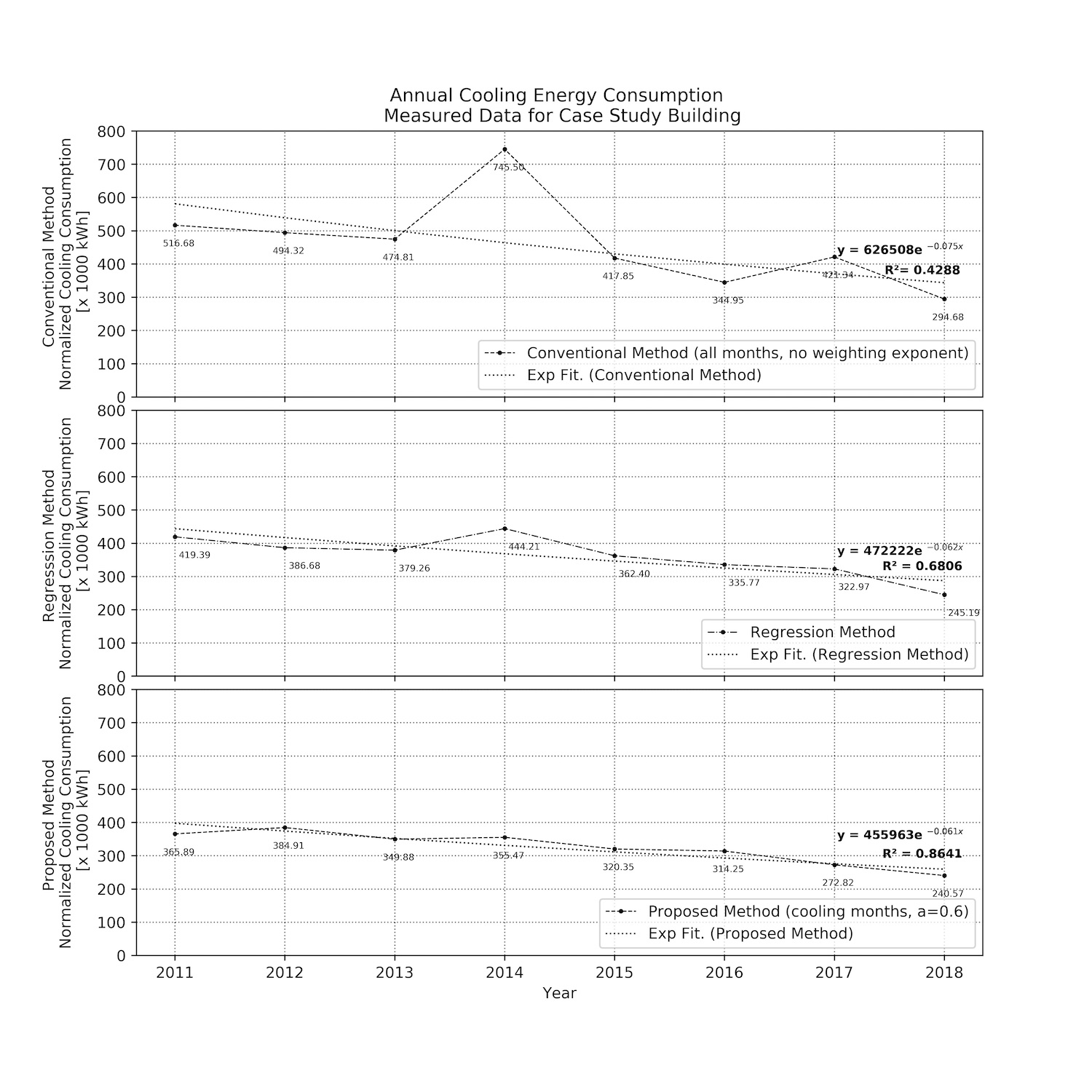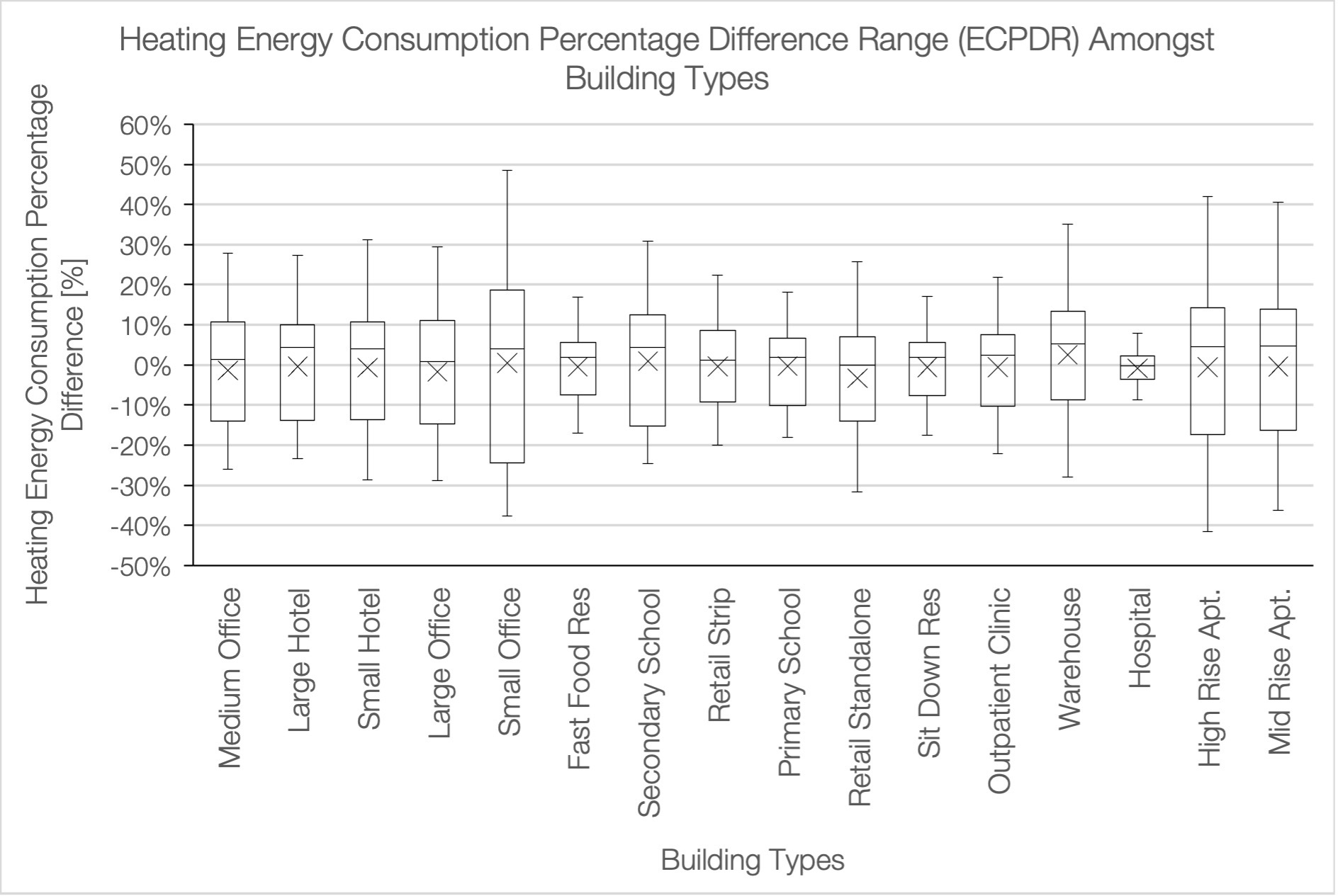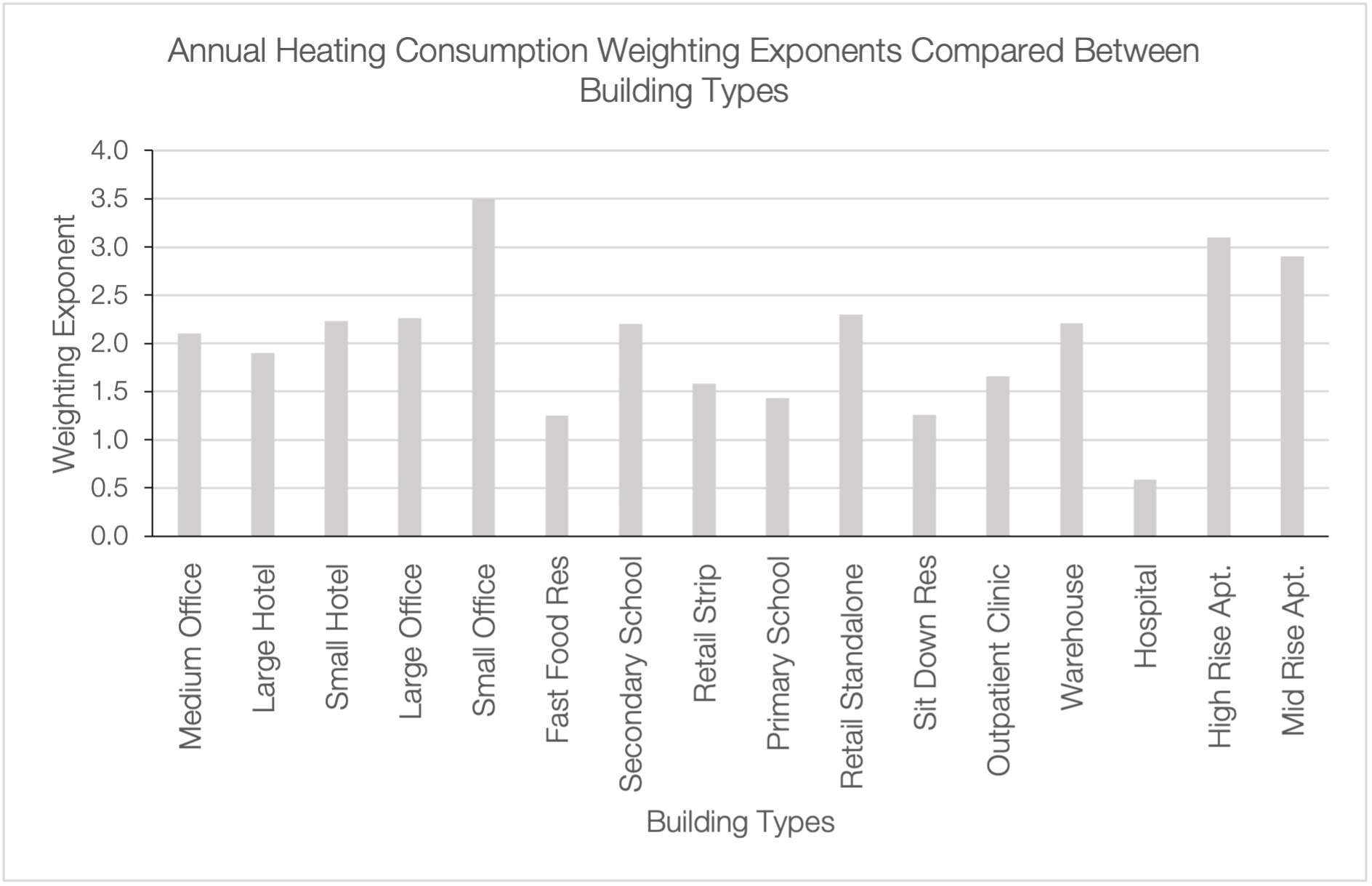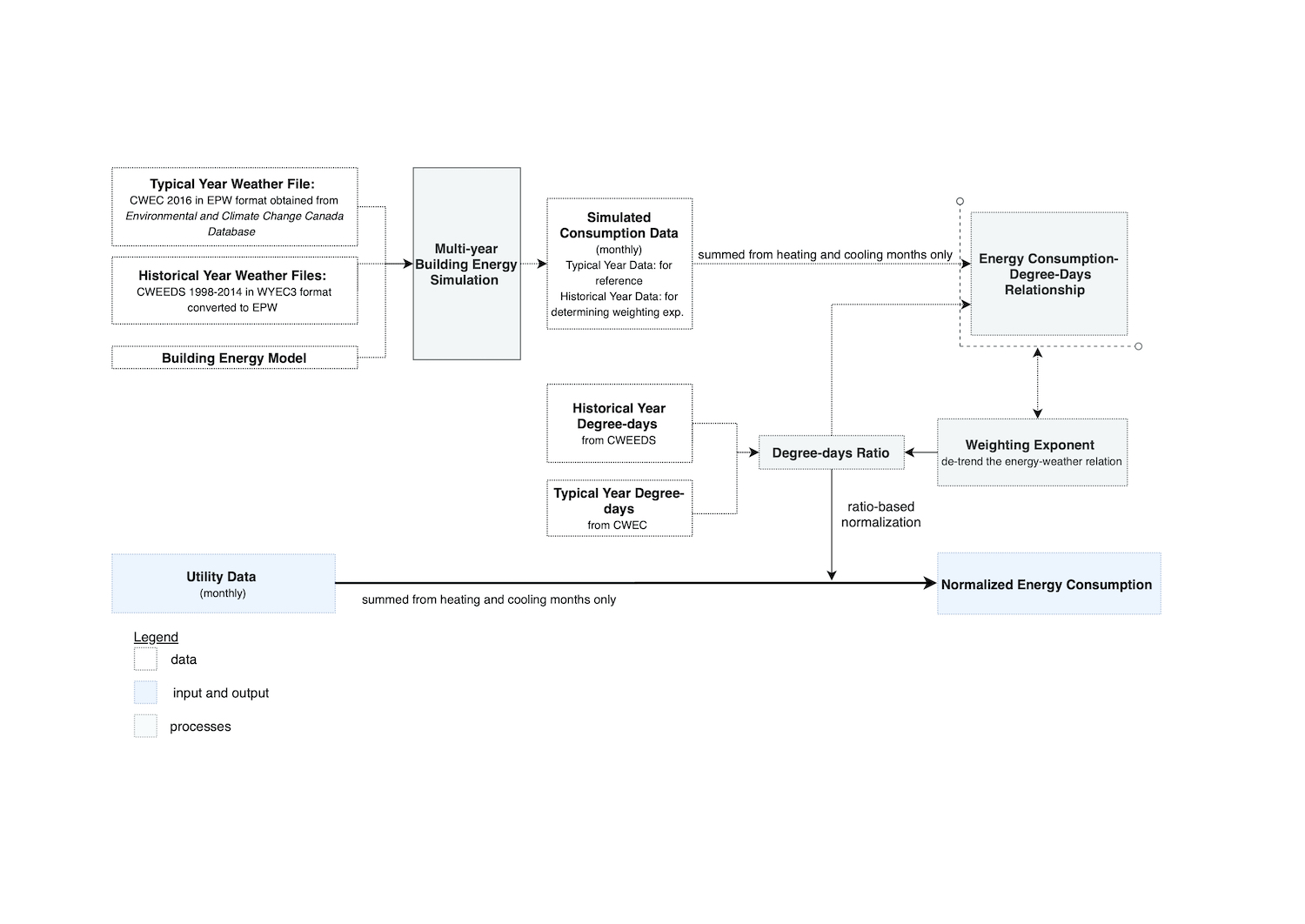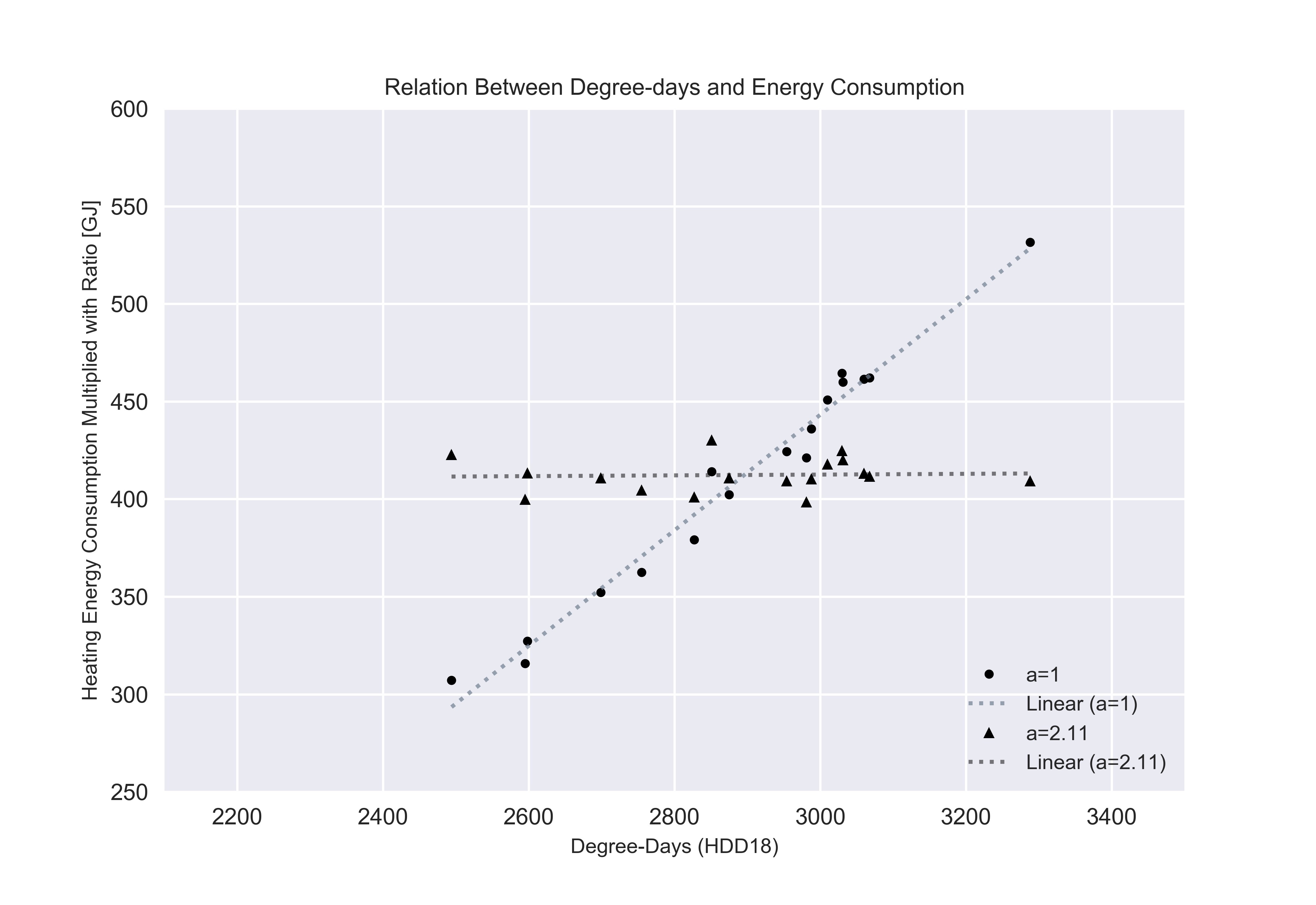BUILDING SCIENCE
Claire Tam—Alumni Research Award
![]()
Claire Tam—Alumni Research Award

About the Award
For outstanding research achievement in the area of Building Science.
A Novel Method to Assess Long-Term Building Energy Consumption Variation through Weather Normalization and Multiple Year Building Energy Simulation
Supervisors: Zaiyi Liao, Paul S.H. Poh
Context
Building energy performance is subject to weather variations, and changes in the building conditions, occupant behaviour and operational schemes. This research analyzed the energy-weather relationship of different building types and evaluated the effectiveness of conventional weather normalization methods in isolating the impacts of year-to-year weather variation on energy consumption. The proposed method was tested using both simulated and measured space heating and cooling energy consumption data.
Research Problem
Conclusion
The major contributions from this study are as follows:
For outstanding research achievement in the area of Building Science.
A Novel Method to Assess Long-Term Building Energy Consumption Variation through Weather Normalization and Multiple Year Building Energy Simulation
Supervisors: Zaiyi Liao, Paul S.H. Poh
Context
Building energy performance is subject to weather variations, and changes in the building conditions, occupant behaviour and operational schemes. This research analyzed the energy-weather relationship of different building types and evaluated the effectiveness of conventional weather normalization methods in isolating the impacts of year-to-year weather variation on energy consumption. The proposed method was tested using both simulated and measured space heating and cooling energy consumption data.
Research Problem
- How can energy consumption results from Multiple Year Building Energy Simulation (multi-year BES) be used to compute a representation of a building’s energy-weather relationship for use in the weather normalization process?
- Are current weather normalization methods effective in determining the impacts of changes in building condition and operational schemes on energy consumption?
Conclusion
The major contributions from this study are as follows:
- The proposed method improves the efficacy of the Degree-days method, a commonly used weather normalization method, by introducing a weighting exponent and excluding the consumption values during the “Shoulder Season” months in the dataset for deriving an indicator of the changes in building condition or system operations over years.
- Conventional methods which determine a building’s energy-weather relationship from measured data may be susceptible to errors because energy consumption over time is influenced by more factors than weather variation such as performance degradation. The simulated energy consumption resulting from multi-year BES, which are only affected by yearly weather variation, can be used to derive the weighting exponent. The weighting exponent uniquely represents the sensitivity of a building’s energy consumption to weather variation and contributes to improving the accuracy of the weather normalization.
- The proposed method is insensitive to degree-days base temperature. Energy auditors can conduct the weather normalization using degree-days irrespective of the base temperature used for the calculation.
